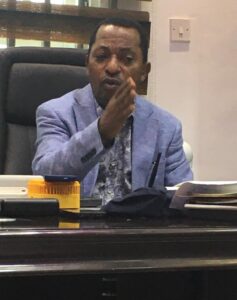
Joyce Mmereole Okoli
Nigeria’s participation in the African Continental Free Trade Area (AfCFTA) could render the nation a dumping ground for imported goods unless urgent steps are taken to address critical shortcomings, the Vice President, Air and Logistics of the National Association of Government Approved Freight Forwarders (NAGAFF), Segun Musa, has warned.
Speaking in a recent interview, Musa acknowledged the potential of AfCFTA to boost Nigeria’s economy but lamented that the country currently lacks competitive goods for trade. “We have opened AfCFTA for trade liberalization, but unfortunately, Nigeria has nothing to showcase. We are likely to be a dumping country because we have nothing to exchange,” he stated.
Musa pointed to critical shortcomings, including unstable energy supply, outdated technology, poor infrastructure, and inadequate security, as major impediments to Nigeria’s success in the continental market. He stressed that sustainable production is key to deriving benefits from AfCFTA, urging the government to take decisive action to improve trade readiness.
To avoid being left behind, Musa called for robust measures to support local production. “We need to identify and support entrepreneurs in production, provide them with liquidity, and ensure their products meet certification standards for both local and export markets,” he advised.
He also highlighted the role of regulatory agencies like the Standards Organisation of Nigeria (SON) in promoting standardization and improving manufacturing capacity.
Musa criticized the government’s current approach to AfCFTA implementation, describing it as overly theoretical. “Most of their activities are just talk shows and paper presentations. If the government is serious, they should focus on practical dialogue and strategies to achieve results,” he asserted.
The NAGAFF Vice President also accused committees overseeing AfCFTA implementation of failing to engage stakeholders effectively. He called for a shift from policy discussions to actionable strategies involving all relevant parties. “To date, there is no seriousness in their approach. We need to move beyond theories to actionable plans,” he said.
Despite his concerns, Musa expressed hope that Nigeria could still harness the benefits of AfCFTA if the government prioritizes local content development, capacity building, and export-readiness initiatives. “AfCFTA is a continuous market, and it is not too late for us to harness its benefits,” he concluded.
The AfCFTA agreement, effective since 2021, aims to create a single market for goods and services across Africa, fostering intra-continental trade and economic integration. While it presents immense opportunities, Musa’s comments highlight the urgent need for Nigeria to address structural challenges and formulate a clear trade strategy to compete effectively in the African market.

